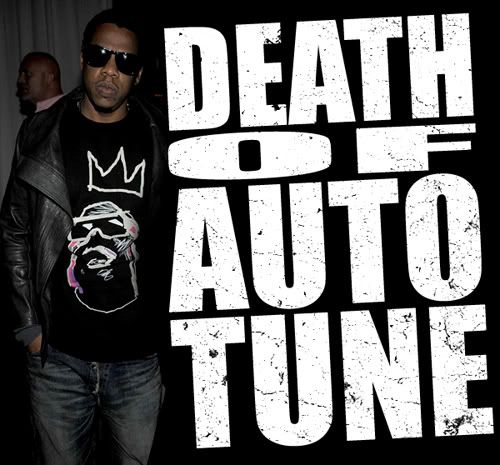By: Oscar Black
Jay-z, despite sounding the death knell, has given new life to the debate surrounding the autotune where functionality and plurality are concerned in hip hop.For one, D.O.A. (Death of Autotune), as an offering is cocksure, but as a statement, is staggeringly unsure of itself.
To put it no other way: I have a problem with Jay-z having a problem with autotune, judging, not by the course of his actions, but by the underlying rationale provided. To catch you up, in D.O.A, he calls for the end of autotune, though never explicitly, neglecting to name any culprits or targets. Moreover, later in an interview, he absolves Kanye, Lil Wayne and T- Pain, without question, unabashedly, the three largest profiteers of the device. Ignoring who they are, for a second, it’s not exactly clear why these three get spared. Not only have they used it separately, but with each other, on each other, to maximum gain, giving rise to the idea an incestuous relationship. This would explain the lack of creativity: everybody’s fu*%ing the same concept, with the same people, the same way.
More to the point, if Jay’s argument had to be translated into a universal policy, it would be something like this: cheating is bad but some cheaters are OK.
Not unlike a drug, a performance-enhancing drug, in this case, autotune has its clientele, users, frequent and casual, among them. This is where jay’s proposed policy falls flat. Is it the drug that’s bad? The user? Or the supplier? Jay, of course, says it is the drug, itself.
To point to no other reason than the fact that autotune has its original setting in classical music as a pitch adjuster, its existence, alone, is not the problem or part of it, remotely.
I would argue that the problem party, if you will, is the user. A simply study in fundamental economics will tell you a demand must exist in order for a supply to exist. But, I also recognize, that this cause-effect relationship does not lend itself without issue. The supply is endless, therefore there is no supplier or put differently, the user is the supplier is the user. In this way, assigning blame is pointless if futile.
Really, Jay’s issue with autotune is that it cosmetically changes what an artist should look, not sound, like, ironically.
For those that have you used the device (Ron Browz, Dj Webstar) it guarantees nothing less than an audience, which more times than not, is the most important prerequisite for a hit. Think about it: part of having a hit, beyond if it’s good or not, means having a large mass audience. You can have a hit, without it being good, but without an audience, you have no hit, however great.
With that said, the autotune usurps this position, giving the artist, in question, a large base to work with, a notion that bothers Jay-z, as it should. The artist now looks like a caricature of his mediocre self: a star.
Here Jay-z and I agree. Autotune undermines the intention of a meritocracy that was thought to have governed the music industry and that is to reward talent.
One song can’t be expected to change that. It’s going to require a change tantamount to a complete overhaul in the way the industry is run and accounted for. Jay knows better than most: “industry shady, need to be taken over”.

